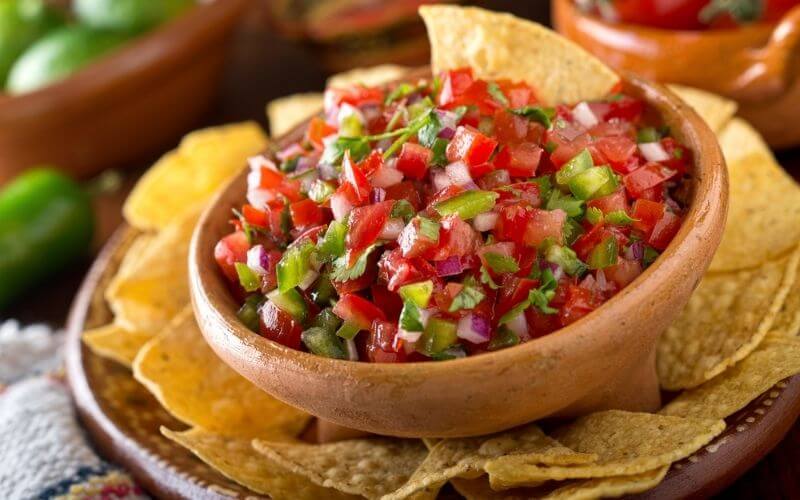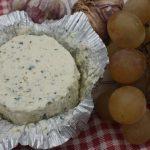Discover the age-old question: can you freeze salsa? This guide will walk you through the process, ensuring your salsa remains delicious for future enjoyment.
| Article Highlights | Details |
|---|---|
| Introduction to Salsa | Yes, you can freeze salsa, but there’s a right way to do it. |
| Types of Salsa | Salsa comes in many different forms, including Salsa Roja, Salsa Verde, and Pico de Gallo. |
| Freezing Salsa: A Guide | From store-bought to homemade salsa, learn detailed steps on how to freeze salsa properly. |
| Salsa Freezing Tips & Advice | Master the art of freezing salsa with tips on canning, preserving tomatoes and thickening salsa after thawing. |
| FAQ | Find quick answers to common questions such as the shelf life of homemade salsa and the effect of freezing on salsa’s texture. |
Introduction to Salsa
Anyone who’s thrown a big party knows the challenge of preparing big batches of food. Advance cooking becomes your best friend! Salsa and chips, being the crowd favorites, naturally lead to the question: can you freeze salsa? Short answer: absolutely. But, there’s a right way to do it.
Types of Salsa

Salsa is an age-old dish, gracing the tables of Incan, Mayan, and Aztec societies. More than its historic significance, salsa is versatile. Whether you’re garnishing a sandwich, spicing up a tortilla wrap, or dipping nachos, salsa is the answer. You can even extend the shelf life of an opened Pace Salsa with this guide.
Salsa 101: The World’s Most Versatile Sauce
- Salsa Roja: The bright red sauce primarily made from ripe red tomatoes, commonly seen in restaurants.
- Salsa Verde: Made from tomatillos giving it a distinct green color.
- Pico de Gallo: A raw blend of fresh ingredients, making it chunky and ideal as a topping.
- Mango Salsa: A sweet and spicy mix made from ripe mangos, perfect for fish tacos.
- Salsa Ranchera: Roasted ripe tomatoes with a smoky twist.
Freezing Salsa: A Detailed Guide
Before diving into freezing, it’s essential to acknowledge that frozen salsa will have a different texture than its fresh counterpart. Particularly, no-cook freezer salsa can be watery upon thawing.
Freezing Store-Bought Salsa
Can you pop those store-bought salsa jars straight into the freezer? Well, with a few precautions, yes!
- Check the Packaging: Glass jars can shatter in the freezer. If your salsa is in glass, transfer it to plastic.
- Portioning: For convenient future use, pour salsa into ice cube trays. Once frozen, transfer the cubes to a freezer bag.
- Air Out: Push out as much air as possible from the freezer bags to prevent freezer burn.
Freezing Homemade Salsa
Homemade salsa is often made in bulk. Freezing can help preserve its freshness beyond the usual fridge shelf life.
- Storing Large Amounts: Use a large plastic jar with minimal air space.
- Storing in Portions: Use smaller jars for 2-3 servings or ice cube trays for individual servings.
- Layering: Store cubes or portions in multiple freezer bags to save space.
Salsa Freezing Tips and Advice

- Canning: If freezing isn’t your style, consider canning your homemade salsa. It can be a great way to preserve salsa without cooking.
- Freeze Tomatoes: Preserve the flavor and color by blanching, dicing, and freezing tomatoes.
- Thickening Salsa: After thawing, if your salsa is too watery, simply cook off the excess liquid on low heat.
Frequently Asked Questions
How Long Does Homemade Salsa Last?
In the fridge, approximately 5-7 days. In the freezer, up to 6 months.
Is Salsa Healthy?
It is, indeed! Salsa is packed with vitamin-rich vegetables.
Does Freezing Change Salsa’s Texture?
Yes. After thawing, salsa can become softer and watery due to the water content in its ingredients.
Conclusion
Salsa, with its rich history and versatility, has firmly established its place in our kitchens. Freezing it just ensures that this flavorful condiment is always on hand, ready to enhance any meal. Whether you’re serving it fresh or from the freezer, salsa is undoubtedly a culinary treasure.






